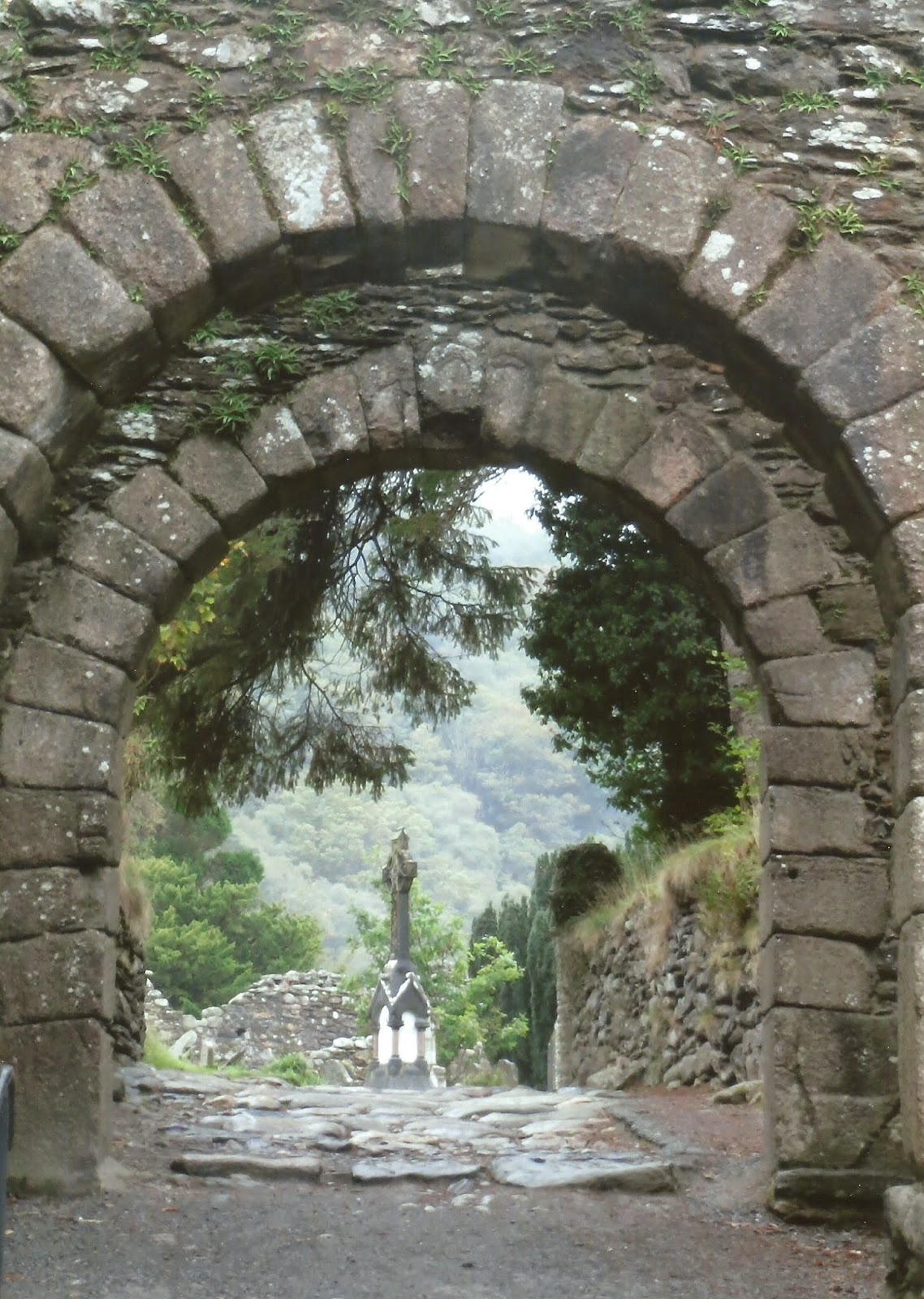A Jill: I stepped through
the Holy Portal
B Norm: Kanuga- Increasing trust beneath Cherokee Pines
C Margaret W Butler: Come shadow, break bread with me
D Candy Smith: It ends the way it begins (she suggested two other variations of that line as well) one of them was Thus the spiral Continues
E Mary Priore: Given in prayer, received in faith
F tom: Spirit loving and blessing time
G Pat: Jung: interrelatedness of all in the universe; quantum field
B Norm: Kanuga- Increasing trust beneath Cherokee Pines
C Margaret W Butler: Come shadow, break bread with me
D Candy Smith: It ends the way it begins (she suggested two other variations of that line as well) one of them was Thus the spiral Continues
E Mary Priore: Given in prayer, received in faith
F tom: Spirit loving and blessing time
G Pat: Jung: interrelatedness of all in the universe; quantum field
H Debbie: the mirror of our souls
I Doris-
my shadow. injured. wholeness. befriended. sacred space?
J
Roberta - "the door of my heart is open.” Or "echoes reverberate life's ancient
call."
This would be the poem with no attempt at rhyme and just a collection of the thoughts as they came in Also this isllustration is Candy's Flower Fairy illustration and her explanation of it
Hi Tom,
Here is the Flower Fairy if you
want to use her for the back of the brochure. I will send the little boy
fairy that I call the Keeper of the Lamp Fairy next. I tried to think
of a symbol that in some way defined all of our classmates and Roberta.
You'll see that this little flower fairy represents Mary's paintings of
flowers; Margaret's canes, Pat's red shoes, Jill's Tarot cards; and the
Tarot card is from the Jung deck - the Ace of Wands, which is the
caduceus. The Ace of Wands represent "a brand new course of action," and
the caduceus has the intertwined snake figures - "snake" for me.
If the computer image doesn't work for you, I'll be glad to mail the drawings snail mail.
Hugs,
Candy | |
| Flower Fairy |
Distilled moments 2015
I stepped through the Holy Portal
Kanuga- Increasing trust beneath Cherokee Pines
Come shadow, break bread with me
It ends the way it begins
Given in prayer, received in faith
Spirit loving and blessing time
Jung: interrelatedness of all in the universe; quantum field
Kanuga- Increasing trust beneath Cherokee Pines
Come shadow, break bread with me
It ends the way it begins
Given in prayer, received in faith
Spirit loving and blessing time
Jung: interrelatedness of all in the universe; quantum field
the
mirror of our souls
my shadow. injured.
wholeness. befriended. sacred space?
the
door of my heart is open.
This is the other of Candy's illustration with her and the draft of the poem done as a French Pontoum and open to any and all editing
Hi again!
Here is the Keeper of the Lamp.
He has red shorts for you; glasses for Norm (which Norm will understand
since he wrote to me and mentioned driving off in his car with his
glasses on top! Needless to say he had to order new glasses.) The gym
shoes are for Doris (I couldn't think of anything else and she always
wore her gym shoes.) The blue rock he is sitting on is for Debbie; and
the oil lamp is for Roberta.
Hope these little
guys will work. I should have drawn this little boy facing the other
way. I'm sure you can shift him on your computer. If not, I can flip him
and re-send - so they are facing each other if that's how you want
them.
Feel free to add to or manipulate the designs. I did not do a background since I wasn't sure how you would use them.
I have finished my paper and fairy book, so if I can do anything else just let me know.
Merry Christmas to you and Pat!
Love,
Candy | |
| Keeper of the Lamp Fairy |
Distilled Moments in Pantoum 2015
I stepped through the portal free,
Cherokee pines increasing trust.
"O, shadow; break bread with me
spiral beginnings as endings must,
Cherokee pines increasing trust.
"O, shadow; break bread with me
spiral beginnings as endings must,
under Kanuga pines, increase trust.”
Giving in Prayer, receiving faith
spirally beginning as endings must
to be loved by blessed Holy wraith.
Giving in Prayer, receiving faith
spirally beginning as endings must
to be loved by blessed Holy wraith.
We, given by prayer,
faith receiving
of lived interrelated
quantum fields,
blessing time of spirit
to us cleaving.
as this mirror of our
souls shields
through Jung’s universes of Quantum Field.
In sacred space befriended shadows all in all
where a holy mirroring of our souls does heal
as
hearts echoes reverberate life's ancient call
for injured, broken, to wholeness now replace.
Come shadow, break bread with these mortals
opening the doors of our heart with joy to face
once again stepping through these holy portals.
My suggestion is to use the fairies to illustrate the poems ands use Norm's picute of the Gate as the end of the bulletin and Jill painting of Tree of Life on the front



